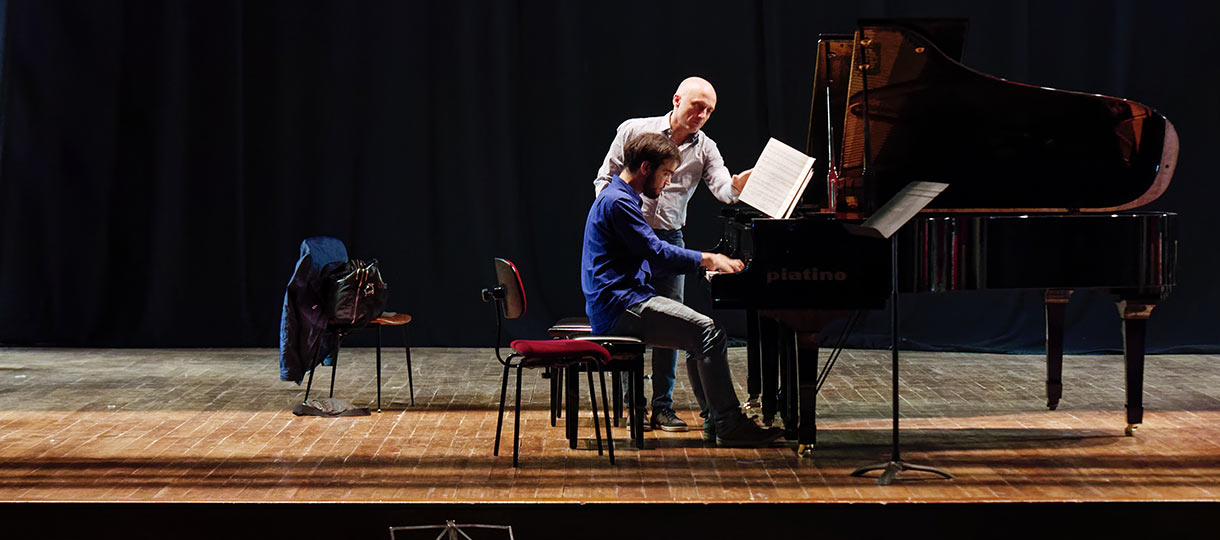Hailed by international critics as one of the most complete and interesting artists of his generation, Benedetto Lupo gained worldwide recognition in 1989 after winning the bronze medal in the 8th annual Van Cliburn International Piano Competition, the first Italian to do so. This led to performances with major American and European orchestras, including the Chicago Symphony, Philadelphia Orchestra, Boston Symphony and the London Philharmonic, working with conductors like Yves Abel, Vladimir Jurowski, Bernard Labadie, Juanjo Mena and Kent Nagano. In a very full concert schedule, Benedetto Lupo is a regular guest in major concert halls and festivals all over the world, including the Lincoln Center in New York, the Salle Pleyel in Paris, London’s Wigmore Hall, the Berlin Philharmonie and the Istanbul International Festival. Known for his vast repertoire, Lupo’s has recorded his performances for many radio and TV networks, in Europe and in the USA. Benedetto Lupo is also designated “Active Academician” of the National Santa Cecilia Academy in Rome, and performs with the most prestigious orchestras in the world.
At the Accademia di Musica Benedetto Lupo teaches a Light Course in advanced piano, masterclasses during the academic year and masterclasses at the Musica d’Estate summer campus in Bardonecchia. As part of our section A Career in Music, we interviewed him to ask what advice he would give to our students, who are set to become the future generation of music professionals.
What were the key experiences that marked your development and training as a musician? At what time of your life did they take place? Why were they significant?
It’s hard for me to single out a few significant experiences in my training as a musician because, as time goes by, it seems to me that every experience has been important in its own way. But if I really had to define fundamental steps along my learning path, I think that the first years, when I was studying with Michele Marvulli, and the last, with Marisa Somma, encapsulate the significance of all the other phases. This is because they were both very important experiences and because they enabled me to make the most of all that I learnt on my path between them. The years I spent studying with Michele Marvulli were absolutely essential in that they enabled me to realize that, as well as traning your fingers, it’s perhaps more important to train your ear. His lessons were a total immersion in the music and this allowed me to get the maximum benefit from all the learning experiences that followed, beginning with lessons with his young student of that time, Pierluigi Camicia. When Marvulli left Bari Conservatory, he put me in the care of Camicia, who was able to encourage and sensitively guide the insatiable and impetuous curiosity about music I had as an adolescent. Then there many other learning experiences with great musicians which significantly enriched my development as an artist: I’m thinking of Magaloff, Agosti, Zecchi, Perticaroli, and the masterclasses with Bolet and Perahia. Studying with Aldo Ciccolini and Marisa Somma, the last teachers in my “official apprenticeship” were particularly important for me, because both experiences were intense and long lasting and because, diverse as they were, they complemented each other. The first thing that I noted in Aldo Ciccolini was that his immense talent as a pianist, brilliantly expressed in all of his vast repertoire, was combined with strict discipline. I saw that there was a huge amount of work behind that seeming naturalness, the playing style that was so Apollonian and, under some aspects, so different from any other great pianists I had heard. My experience with Marisa Somma was also fundamental because she enabled me to finally begin to put some order in my thoughts about music. She continued to foster my curiosity, continually opening my mind up to new perspectives, while, at the same time, enabling me to find a mental space and the time necessary to achieve a synthesis, to find the balance between the eternal search for the stimulus of inspiration and the realization that control too plays a part in developing a complete artist. Thanks to Somma the word “control” lost the connotation of sterilty that it had always held for me and that had always aroused hostility in me. From that moment of realization, it was a short step to accepting that two conflicting forces could coexist when we play music, forces which must be accepted and “embraced”, if we are to arrive at a deep understanding of that magic alchemy of inspiration, art and “craft” that is musical performance. Because our profession is also a “craft” and, as such, it consists not only of inspiration but also of many long hours of the humble, patient work of the artisan.
Can you describe one or two turning points in your career? What impact did they have on your career? Why were they important?
Firstly, I would like to say that, despite the fact that I have taken part in many competitions, I have never been enthusiastic about them. However, I must admit that the various international competitions I entered were turning points for my development as a musician. As regards my career, perhaps the first really important milestone was when I won the International Piano Competition “Prize Jaen” in 1982, which gave me some exposure in Spain and caused me to fall in love with the Spanish repertoire for piano. Soon afterwards, I had other wins in the United States, which led to many concert engagements and enabled me to travel widely, but the moment that really was a turning point was the Van Cliburn Competition in 1989. Although I had already performed many times in public and sometimes on very prestigious stages, the Cliburn opened up opportunities for many more concerts than before I won the competition, and, more importantly, it obliged me to play a wide ranging repertoire in a very short timeframe. Suddenly, I found myself working at a much more intense pace than I was used to, a really challenging experience that forced me to grow as a musician and helped me to further widen my musical horizons and to become aware of the situations in which I could really express myself fully. It forced me to realize what it really meant to live the life of a career pianist, which involves some experiences that are much less enjoyable than they may seem from the outside. The road was not always easy and during those years I appreciated even more the fact that I had accumulated an extensive repertoire that gave me a certain amount of confidence in progressing along my career path. Despite the many difficulties and an often punishing work load, these years were exciting and crucial for my development as an artist, and certainly those key experiences have resonated throughout the following years of my career and in my teaching.

Often our mistakes teach us important lessons. If you could go back in time in your career what would you do differently?
Mistakes really are great teachers, even though it is sometimes difficult to recognise this at the time. Of course, there are things that I would do differently today: errors in judgement, from a human as well as an artistic point of view. There were people who took advantage of me, of my loyalty and relative naiveté at the beginning of my career. But I think you have to understand your mistakes and accept them as necessary experiences, because they arise from precise situations that are often unforeseeable. Certainly, it would be stupid if, with the benefit of hindsight, I were to make those same errors again. However, I truly believe that everything happens for a reason and that it’s important to transform a mistake into a new strength, thanks to the lesson we have learnt from committing that error, without wasting time in useless regrets.
Along a musician’s career path there are always many important decisions to be made and these often depend on and result from the opportunities that are offered to them. What helped you to stay focused and not to lose sight of your goals?
One of the most difficult things to learn, at least for me, is how to say no, a difficulty that goes hand in hand with its polar opposite – learning to say yes. To say yes to something you would particularly like to do and that you feel really drawn to, even though your fears are holding you back. Sooner or later you have to face up to these fears, understand where they come from and the reason why. And even if this self-analysis may not translate directly into your saying “yes”, the process of introspection itself can lead to a deeper and more genuine understanding of yourself. In these situations it can be of great help to be able to talk things over with people who have more experience than you, people who you know have a sincere respect for you and wish you well. It’s important to have people like these in your life: firstly, because they can offer valuable advice and, secondly, because their continuing presence and their support serves as a mirror that can reflect back to you a clear image of your deepest motivations as an artist.
Apart from studying with great passion and dedication, what advice would you give to young musicians who are starting out on a career in music?
The first advice that comes to mind is that your life in music should be lived as a total experience, always seeking what is beautiful and true, both within you and in the external world, in all situations. Even in times as difficult as these, it is important to maintain your awareness of what the wellsprings of your inner life really are, so you can continue to nourish that consciousness tenaciously: this is how you will avoid straying from your chosen path and losing your sense of what is really essential for you, in contrast to what seems necessary but in reality is not.
__________________
- Benedetto Lupo
- Light Course >>
- Masterclasses during the academic year
- Masterclasses at the Musica d’Estate summer campus
- Subscribe to our newsletter >>
